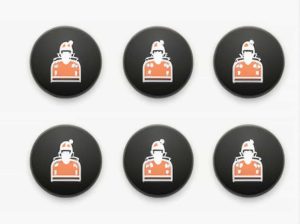When applying for a job you may be asked to submit a resume or a curriculum vitae (CV). While both documents serve the purpose of presenting your qualifications they have key differences. Understanding these differences will help you choose the right format for your job application.
This topic will explain the differences between a resume and a CV their advantages and disadvantages and how to decide which one is better for your career goals.
1. What Is a Resume?
Definition of a Resume
A resume is a short concise document that highlights your skills work experience and education. It is typically one to two pages long and focuses on relevant qualifications for a specific job.
Key Features of a Resume
- Length: Usually 1-2 pages
- Content: Focuses on work experience skills and achievements
- Purpose: Used for most job applications in business technology and other industries
- Customization: Tailored to each specific job application
Advantages of a Resume
✅ Short and to the point – Employers can quickly scan it
✅ Highlights key achievements relevant to the job
✅ Easier to customize for different job applications
Disadvantages of a Resume
❌ Limited space to showcase all achievements
❌ Less detailed than a CV
2. What Is a Curriculum Vitae (CV)?
Definition of a CV
A curriculum vitae (CV) is a detailed and comprehensive document that provides a complete history of your academic and professional background. Unlike a resume a CV can be several pages long and includes more details about education research publications and professional experiences.
Key Features of a CV
- Length: Can be 2-10 pages or more
- Content: Includes detailed academic background research and work experience
- Purpose: Mainly used for academic research and government positions
- Standard format: Does not need customization for different jobs
Advantages of a CV
✅ Comprehensive – Includes all professional and academic achievements
✅ Best for academic and research positions
✅ Shows expertise and depth in a specific field
Disadvantages of a CV
❌ Too long for most corporate jobs
❌ Not tailored for specific job applications
❌ Takes more time to review
3. Key Differences Between a Resume and a CV
| Feature | Resume | Curriculum Vitae (CV) |
|---|---|---|
| Length | 1-2 pages | 2-10 pages or more |
| Purpose | Job applications in business tech etc. | Academic research and government jobs |
| Customization | Tailored for each job | Standard format rarely customized |
| Content | Focuses on experience and skills | Includes detailed academic and professional history |
| Use | Common in the U.S. and private sector | Common in academia and international jobs |
4. When to Use a Resume vs. a CV
Use a Resume If:
✔ You are applying for a job in business technology marketing sales or finance
✔ You need a short and customized document
✔ The employer has specifically requested a resume
Use a CV If:
✔ You are applying for academic research or government positions
✔ You need to showcase publications research and projects
✔ The employer has specifically requested a CV
5. Do Employers Prefer a Resume or a CV?
The preference between a resume and a CV depends on the industry job type and country.
- In the United States most private-sector jobs require a resume. A CV is mainly used in academia research and medical professions.
- In Europe Africa and Asia the term CV is often used interchangeably with a resume. However employers generally expect a shorter version similar to a resume in the U.S.
Before applying always check the job description to see whether the employer requests a resume or a CV.
6. Can You Use a Resume Instead of a CV?
It depends on the job. If an employer specifically requests a CV submitting a resume may not be acceptable. However if the job posting does not specify a well-structured resume is usually sufficient for most private-sector jobs.
If you are unsure you can also prepare both a resume and a CV and use them depending on the job application.
7. How to Format a Resume and a CV
Resume Format Example
1️⃣ Contact Information (Name phone email LinkedIn)
2️⃣ Professional Summary (A brief introduction of your skills)
3️⃣ Work Experience (List of jobs with achievements)
4️⃣ Skills (Relevant to the job)
5️⃣ Education (Degrees and certifications)
CV Format Example
1️⃣ Contact Information
2️⃣ Academic Background (Degrees institutions graduation years)
3️⃣ Work Experience
4️⃣ Research & Publications
5️⃣ Certifications & Awards
6️⃣ Professional Memberships
8. Which One Is Better: Resume or CV?
There is no one-size-fits-all answer. The choice depends on your career goals industry and employer requirements.
- If you want a corporate job a resume is the best choice.
- If you are in academia or research a CV is the right option.
Both a resume and a CV are essential job application documents but they serve different purposes. A resume is short tailored and job-focused while a CV is detailed and comprehensive.
Before applying for a job always check what the employer requires. By using the correct format you can increase your chances of landing an interview and securing your desired job.



